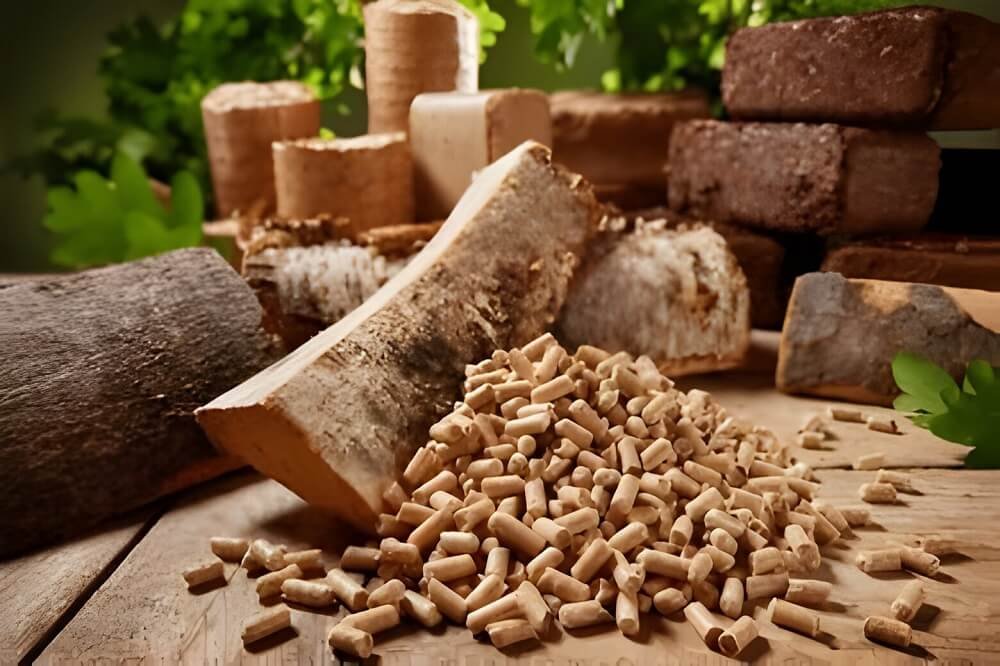Environmental issues are growing every day. Pollution, deforestation, and waste mismanagement are harming the planet. These challenges require immediate action. One simple yet effective solution is briquetting. This process can help reduce waste, lower pollution, and promote clean energy. This article will explain why briquetting is essential for creating a greener future.
What is Briquetting?
Briquetting is a way to turn waste into compact blocks called briquettes. These blocks can be used as fuel or raw materials in industries. Instead of letting waste go unused or cause harm, briquetting transforms it into something valuable. This makes the process both eco-friendly and practical.
Materials Used in Briquetting
Many types of waste materials can be used in briquetting, such as:
- Agricultural Waste: Rice husks, wheat straw, and sugarcane bagasse.
- Forestry Residues: Sawdust, wood chips, and bark.
- Industrial By-products: Charcoal dust, metal powders, and fly ash.
These materials are often thrown away or burned, which can pollute the environment. Briquetting gives them a new purpose.
The Process of Briquetting
Briquetting follows a simple process:
- Collect Materials: Waste is gathered from farms, forests, or factories.
- Dry the Waste: Moisture is removed to make the material suitable for briquetting.
- Crush into Smaller Pieces: Large particles are broken down for better compression.
- Compress into Briquettes: Machines press the material into dense blocks.
- Cool and Store: Finished briquettes are cooled and stored for use or transport.
Benefits of Briquetting
Briquetting has many benefits. Here are some of the main ones:
1. Less Waste, Cleaner Environment
Briquetting reduces the amount of waste that ends up in landfills or gets burned. This helps lower pollution and keeps the environment cleaner.
2. A Cleaner Energy Source
Briquettes are a clean and renewable energy option. They produce less smoke and carbon emissions compared to fossil fuels.
3. Protects Forests
Using briquettes reduces the need for firewood and charcoal. This helps protect forests and wildlife.
4. Affordable Energy
Briquettes are cost-effective and easy to produce. They are a great choice for homes and industries looking for low-cost energy.
5. Better Air Quality
Switching to briquettes can significantly improve air quality by reducing harmful emissions from traditional fuels.
How Briquetting Helps the Environment
1. Reduces Carbon Emissions
Briquettes are carbon-neutral. They release only as much carbon dioxide as the plants absorb during their growth.
2. Keeps Waste Out of Landfills
By recycling waste into briquettes, we can reduce the amount of garbage in landfills and prevent pollution of soil and water.
3. Fights Deforestation
Briquettes provide a sustainable alternative to cutting down trees for fuel. This helps slow down deforestation and its negative effects on the planet.
Industries That Use Briquetting
Briquetting is useful for many industries, such as:
- Farming: Farmers turn crop waste into briquettes for fuel or fertilizer.
- Energy Production: Power plants use briquettes as a renewable energy source.
- Manufacturing: Factories use briquettes for heating and industrial processes.
- Construction: Briquettes are used in eco-friendly building materials.
Challenges of Briquetting
Briquetting has its challenges too. Some of these include:
- High Startup Costs: Machines and equipment for briquetting can be expensive to set up.
- Varying Material Quality: Not all raw materials are equally suitable for briquetting, which can affect production.
- Lack of Awareness: Many people are unaware of the benefits of briquetting, slowing its adoption.
What Can Be Done?
To overcome these challenges, more education and awareness are needed. Governments and organizations can also provide financial support to make briquetting technology accessible.
The Future of Briquetting
Briquetting has a bright future. As technology improves, machines are becoming more efficient and affordable. Governments are encouraging renewable energy solutions, and briquetting fits perfectly into this vision. With growing awareness, briquetting can become a key player in solving environmental issues.
Conclusion
Briquetting offers a practical way to tackle waste and pollution, and at the same time, it promotes clean energy. It’s a solution that benefits both the environment and the economy. By using waste more effectively, we can reduce our reliance on harmful fuels and protect natural resources. The time to act is now. Briquetting can lead us to a cleaner, greener tomorrow—let’s embrace it today.



